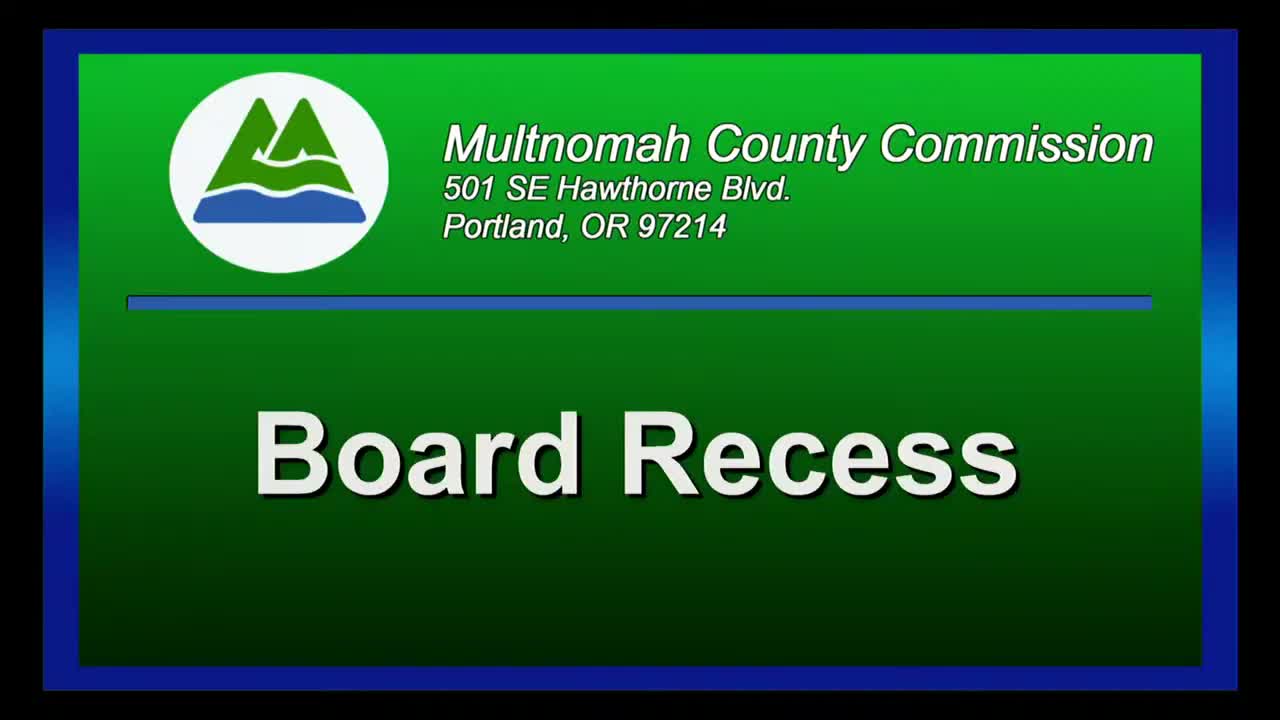Board presses for clarity on Preschool for All modeling, TAG remit and path to universality
Get AI-powered insights, summaries, and transcripts
Subscribe
Summary
Commissioners pressed staff on Nov. 5 for clearer assumptions and timelines behind modeling that will inform whether and how to sustain the Preschool for All program to universal access.
The Multnomah County Board of Commissioners used a Nov. 5 work session to press for clearer scope, assumptions and timelines related to the Preschool for All (PFA) program, the technical advisory group (TAG), the Program Advisory Group (PAG) and the Program Expert Group (PEG). Commissioners said they want the record clarified on the TAG’s remit, the data and demographic assumptions that underpin modeling to reach universal access, and how TAG and PEG outputs will be integrated with existing advisory bodies and department expertise.
Jeff Renfro of the county budget office explained that the TAG was designed as a small, technically focused group of demographers and economists to produce shared, data-driven modeling and that members proposed policy scenarios to be tested. The TAG’s work has included Echo Northwest analysis of population and fiscal scenarios. Commissioners repeatedly urged staff to identify the assumptions the consultants are using for revenue growth, indexing, co-pay proposals, eligibility and service-mix (hours/days of programming) because those inputs materially change cost projections. Commissioner Moyer and others asked for an explicit “path to universality” briefing that would present total program cost under clear assumptions; staff agreed to provide a more detailed plan and to schedule follow-up briefings.
Commissioners also raised governance questions: why the TAG was considering some revenue mechanisms (for example, property-tax options or temporary moratoria on collection) that commissioners said were politically and legally distinct from the measure approved by voters; how recommendations by the TAG would be vetted by program and policy advisory bodies; and how potential conflicts of interest among advisors are being managed. County staff said the TAG’s outputs are intended to inform the board — not to supplant the PAG or existing advisory groups — and that modeling may include scenarios the TAG members asked to explore so the county can show trade-offs and sensitivities.
Commissioners requested: (1) explicit modeling assumptions and sensitivity analyses; (2) updated demographic forecasts for children and families in Multnomah County; (3) a timeline for decisions if the board is to consider changes before the next scheduled automatic increase; and (4) clearer connections between TAG modeling, PEG program recommendations and advice from subject-matter advisory bodies. Staff said a December briefing on the path to universality and a fuller set of TAG deliverables are planned and that board offices will be invited to submit further questions.
What’s next: County staff said they will return with clearer modeling assumptions, updated demography and a timeline for decision points; the board discussed scheduling additional briefings in mid-November and a fuller “path to universality” briefing in mid-December.
